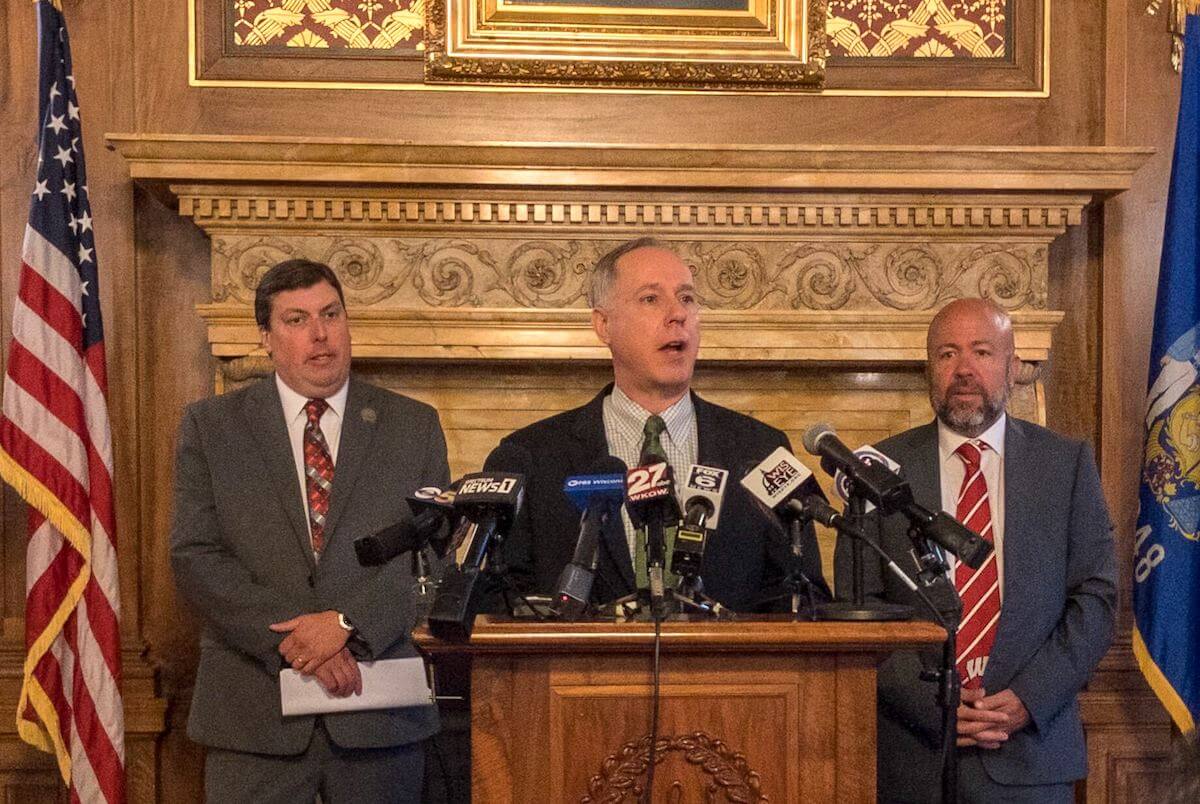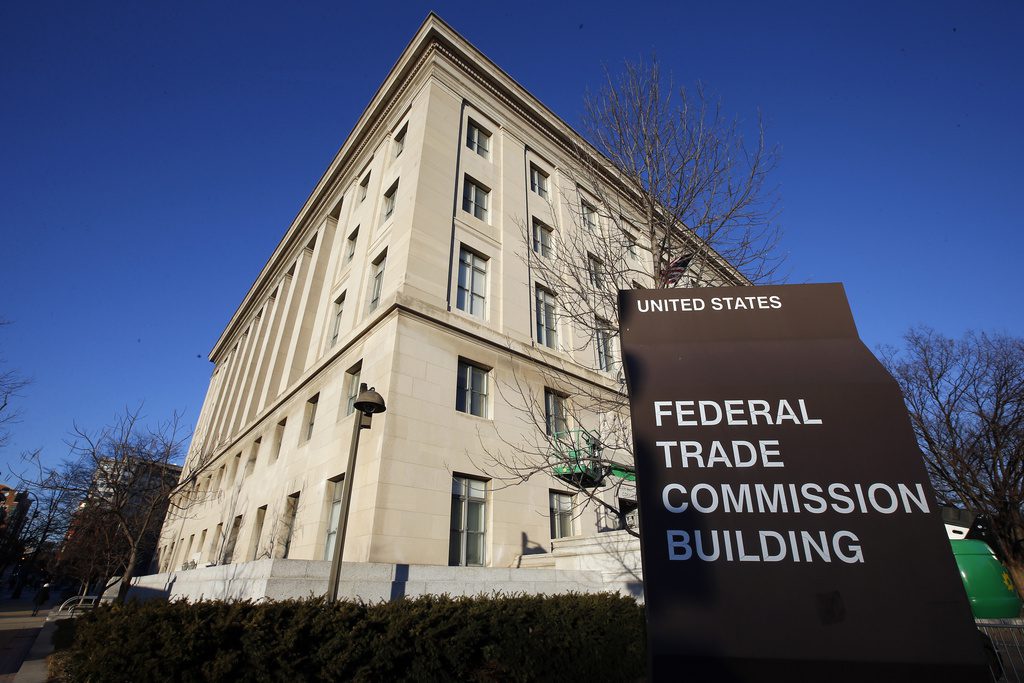
#image_title
#image_title
Maps drafted by Evers’ nonpartisan citizen commission also fail in a bipartisan rebuke, ensuring the battle will go to the courts.
Legislative Republicans’ highly gerrymandered maps are headed to Gov. Tony Evers’ desk, where they face a certain veto, following their Thursday passage in the state Assembly. Evers’ expected veto will bring the question of redistricting before the courts.
The state Senate approved the maps last week. The votes in both chambers fell along party lines.
Gerrymandering is a process in which politicians draw new electoral maps—which determine district lines for local, state, and federal elections—in strange shapes that give their party an unfair advantage in elections. In a Princeton University study, researchers created and examined over 1 million computer-generated, legally compliant maps of Wisconsin. Of those million maps, only 30 had the same level of partisan gerrymandering that the map being pushed by legislative Republicans. The Princeton Gerrymandering Project gave the maps an F for partisan fairness because they lean so heavily Republican.
If a court enacts the GOP maps as drawn, Republicans could achieve a supermajority in the Legislature capable of overriding Evers’ vetoes even if he wins re-election. While the current gerrymandered maps are some of the most egregious in the nation, they have never allowed Republicans to attain such a level of power.
In a statement, Rep. David Bowen (D-Milwaukee) called the new maps the “same poop in a new toilet.”
RELATED: Voting Rights, COVID Safety, and Abortion: Evers Has Vetoed Numerous Harmful Bills
“Once again, [Assembly Speaker Robin Vos (R-Rochester)] is trying to solidify Republican control in the state for another decade,” Bowen said. “Doubling down on one of the most gerrymandered maps in the country, legislative Republicans are ramming through maps that will decide the political landscape in Wisconsin for the next decade with almost ZERO public support. These maps would diminish the representation of People of Color and most likely run afoul of the federal Voting Rights Act.”
Over 150 people spoke for almost 10 hours on the maps put forward by legislative Republicans before a joint Assembly and Senate committee in late October. Other than Vos and Senate Majority Leader Devin LeMahieu (R-Oostburg), none of the commenters spoke in favor of the Legislature’s proposed maps.
“This is an outrageous slap in the face to the people of Wisconsin, who have been loud and clear about their demand for fair maps,” said Matt Rothschild, executive director of the Wisconsin Democracy campaign, in a statement following the maps’ passage.
People’s Maps Fail With Bipartisan Vote
Democrats were united in opposition to legislative Republicans’ maps, but 17 Democrats also voted against the maps drafted by the nonpartisan People’s Maps Commission (PMC) set up this year by Evers, citing concerns that the PMC’s maps could reduce minority representation. Those concerns were raised when the maps were first introduced and were taken into account during the revision process, but for many Assembly Democrats it was not enough.
Rep. Sylvia Ortiz-Velez (D-Milwaukee) said the PMC map “promotes a white supremacist agenda that says it’s OK for other folks who we don’t choose to rule over us and make decisions for us.”
Milwaukee Alderwoman JoCasta Zamarripa, who used to represent Ortiz-Velez’s district, stated that Ortiz-Velez’s comments “carried water for Speaker Vos and his attempts to gerrymander an anti-Latino majority.”
“Disinformation about the Voting Rights Act has no place in the debate about legislative redistricting, whether from a Republican or a Democrat,” Zamarripa stated. “For the voices and votes of Latinos to be given full representation, we need an honest discussion about who is crafting legislative district maps and to what ends.”
Republican legislators were quick to seize on Democrats’ division, with several, such as Assembly Majority Leader Jim Steineke (R-Kaukauna), issuing statements pointing out that a bipartisan supermajority of lawmakers rejected the PMC’s maps.
“Republicans and Democrats don’t seem to agree on much these days,” Steineke said in a statement.
The path to court-drawn maps is far from certain. Democrats and progressives want federal courts to take on the job as they have for many decades. Republicans and conservatives, meanwhile, want the conservative-led state Supreme Court to take the unprecedented step of claiming authority over redistricting. Multiple lawsuits have been filed in state and federal courts but are unlikely to proceed until Evers’ formally vetoes what passed on Thursday.
Politics

Biden makes 4 million more workers eligible for overtime pay
The Biden administration announced a new rule Tuesday to expand overtime pay for around 4 million lower-paid salaried employees nationwide. The...

Biden administration bans noncompete clauses for workers
The Federal Trade Commission (FTC) voted on Tuesday to ban noncompete agreements—those pesky clauses that employers often force their workers to...
Local News

Readers Poll: Top Bowling Alleys in Wisconsin
Looking for the best bowling in Wisconsin? Look no further! Our readers have spoken in our recent poll, and we have the inside scoop on the top...

8 Wisconsin restaurants Top Chef judges are raving about
Top Chef’s 21st season is all about Wisconsin, and on-screen, it’s already apparent that the judges feel right at home here. But, while filming in...




